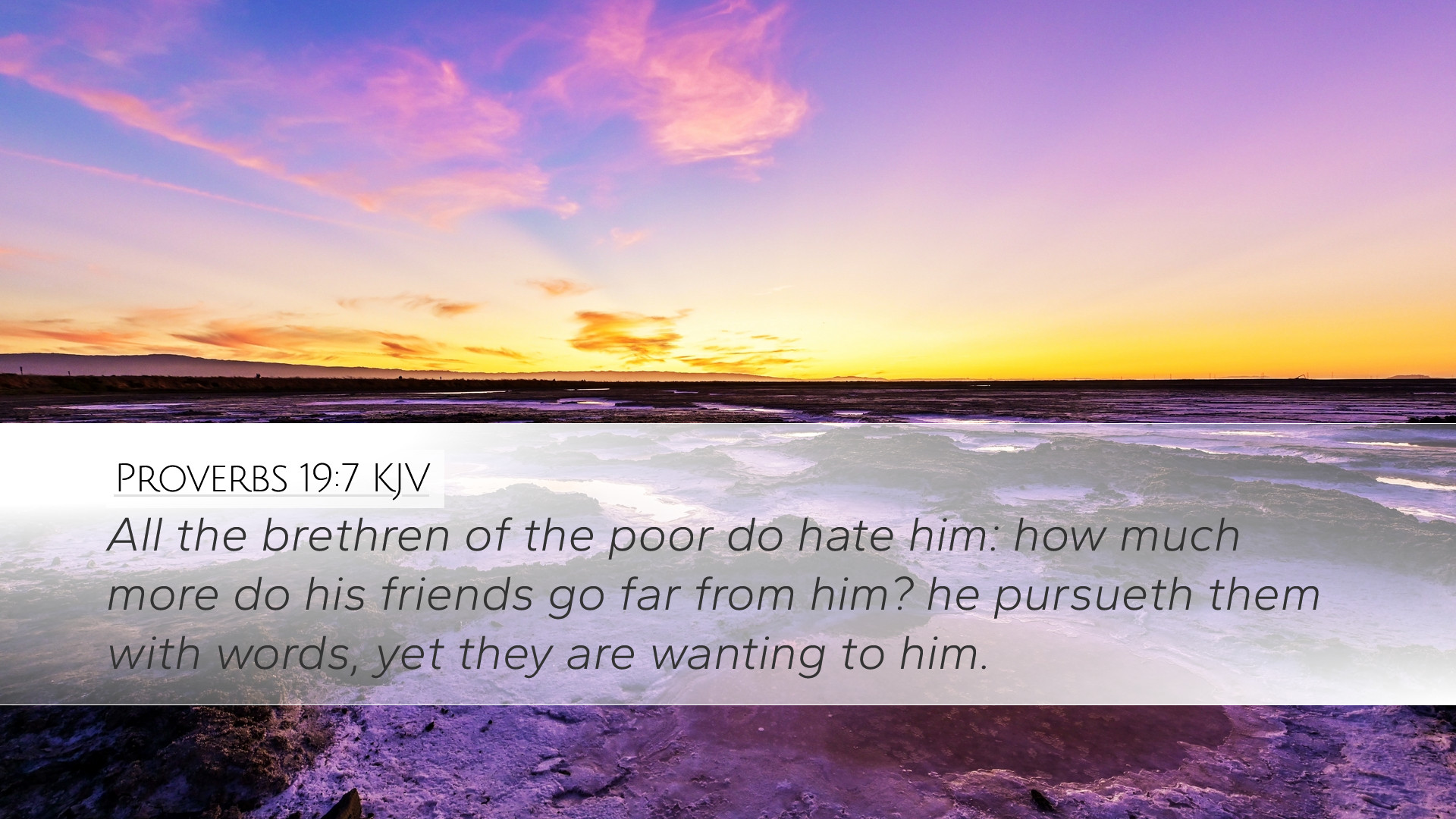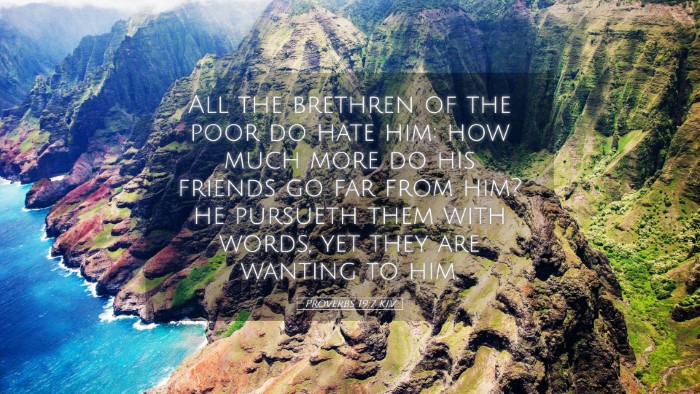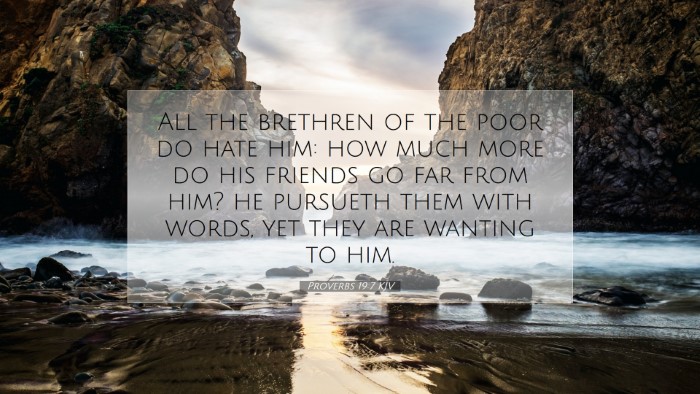Commentary on Proverbs 19:7
Verse: "All the brethren of the poor do hate him: how much more do his friends go far from him? He pursueth them with words, yet they are wanting to him."
Introduction
This verse encapsulates the harsh realities faced by the impoverished within society. The lament articulated here unveils the dynamics of human relationships shaped by material wealth and social status. In this commentary, insights from renowned biblical commentators such as Matthew Henry, Albert Barnes, and Adam Clarke are interwoven to deliver a profound understanding of this scripture.
Contextual Background
Proverbs, traditionally attributed to King Solomon, is a collection of wise sayings and teachings imparting moral and practical truths. The themes often explore the contrasts between the righteous and the wicked, wisdom and folly, and wealth and poverty. This particular verse highlights the stigma surrounding poverty and the consequent social isolation that the poor endure.
Insights from Commentators
Matthew Henry
Matthew Henry emphasizes the deep concern of the social fabric which disintegrates when the wealth gap becomes pronounced. He notes:
- “The poor man is often shunned by those around him; his brothers, who are presumed to have the same blood and ties, repulse him due to his lack of means.”
- “Henry suggests that even the offerings of friendship wane, becoming conditional and transactional. Friends of the poor may retreat further when the burden of poverty attempts to encroach upon their own comfort.”
Albert Barnes
Albert Barnes offers a pragmatic reflection on the consequences of poverty:
- “He notes that those who are close to the poor may feel ashamed, leading to a withdrawal of support. True friends may become distant, unable to bear the shame of association.”
- “Friends at a distance—material riches may saturate relationships to the detriment of human connection, revealing that true affection may depend on circumstances.”
Adam Clarke
Adam Clarke highlights the plea of the poor man, illustrating his relentless pursuit of companionship:
- “Clarke asserts that even the words of the poor seek to bridge the gap for acceptance, but are often met with reluctance.”
- “The phrase ‘he pursueth them with words’ indicates a desperation for connection, reflecting the universal need for acceptance and love, regardless of one’s financial situation.”
Thematic Reflection
This verse serves as a poignant reminder of the societal biases against poverty and illustrates the shame-based actions concerning financial status. The commentators collectively highlight the reality that:
- Isolation: The poor often find themselves isolated not just from friends, but even from family, driven by a societal expectation that correlates worth with wealth.
- Conditional Friendship: Relationships are often fickle, tested against the backdrop of economic status, leading to conditional love that vanishes in times of hardship.
- Empathy and Responsibility: There exists a greater call to empathy—challenging the wealthy to recognize and embrace those in poverty, offering genuine support through love and acceptance rather than disdain.
Pastoral Application
For pastors and theological students, this verse offers ample material for pastoral care and outreach ministries. Considerations may include:
- Preaching on Poverty: Address the societal implications of wealth and poverty in your sermons, drawing on the teachings of this verse to foster empathy within the congregation.
- Encouragement of Christian Love: Urge community members to reach out to the poor and marginalized, practicing tangible acts of love and compassion.
- Spiritual Reflection: Encourage personal reflection among church members about their attitudes towards wealth and the less fortunate, promoting a culture where all are valued equally.
Conclusion
Proverbs 19:7 powerfully conveys the stewardship of relationships amid the reality of poverty. The collective insights from Matthew Henry, Albert Barnes, and Adam Clarke present a clarion call emphasizing the need for genuine love and acceptance that transcends material wealth. It is a reminder to believers to transcend social barriers and embrace those society often rejects—celebrating the inherent worth of every individual as made in the image of God.


